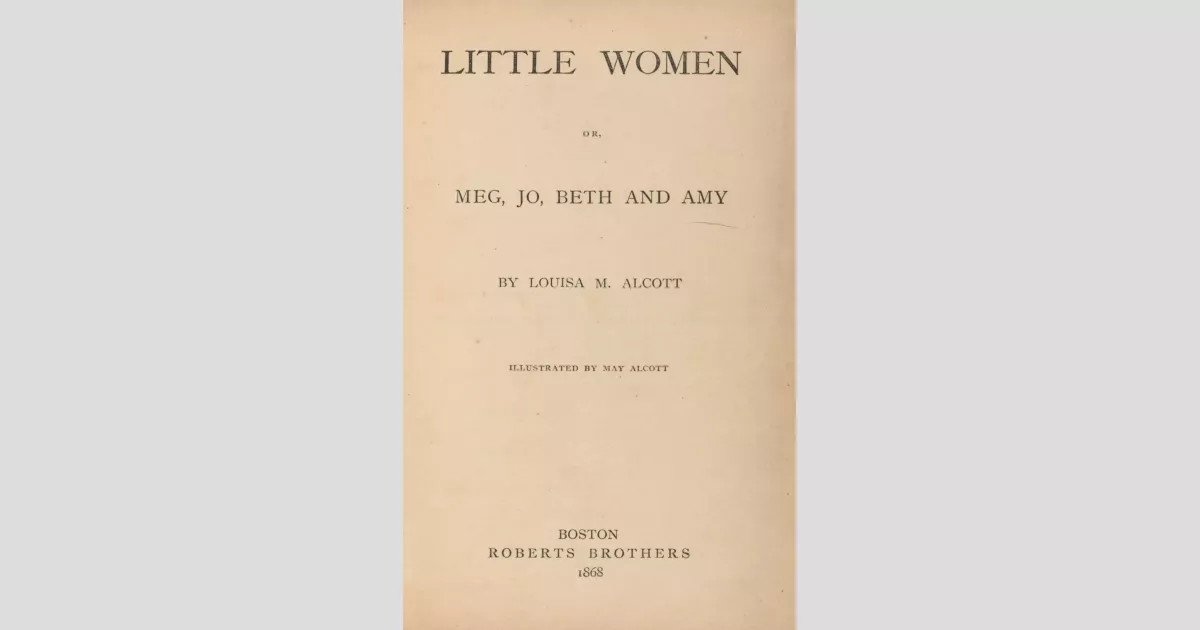"Little Women" by Louisa May Alcott, is a beloved coming-of-age novel published in two parts in 1868 and 1869. The story centers around the four March sisters - Meg, Jo, Beth, and Amy - as they navigate the trials and tribulations of growing up. Drawing inspiration from Alcott's own life and family, the novel provides a semi-autobiographical glimpse into the lives of young women during the Civil War era, exploring themes of family, love, ambition, and societal expectations.
1917: First Silent Film Adaptation of "Little Women"
The first film adaptation of "Little Women," directed by Alexander Butler, premiered in 1917 as a silent film. The cast included Daisy Burrell, Mary Lincoln, Ruby Miller, and Muriel Myers, portraying Amy, Meg, Jo, and Beth, respectively. Unfortunately, this film is now considered lost.
1918: Second Silent Film Adaptation of "Little Women"
In 1918, Harley Knoles directed a second silent film adaptation of "Little Women." The film featured Isabel Lamon, Dorothy Bernard, Lillian Hall, and Florence Flinn as Meg, Jo, Beth, and Amy, respectively. Regrettably, this film is also considered lost.
1927: Recognition of "Little Women"'s Impact
A 1927 report in "The New York Times," highlighted by Madeleine B. Stern, acknowledged "Little Women" as one of the most widely read novels.
1933: First Sound Adaptation of "Little Women"
Directed by George Cukor, the first sound adaptation of "Little Women" was released in 1933, featuring Katharine Hepburn, Joan Bennett, Frances Dee, and Jean Parker as Jo, Amy, Meg, and Beth. The film was a box-office success, breaking records at Radio City Music Hall, and led to the adaptation of "Little Men" the following year.
April 2, 1934: Premiere of Eleanor Everest Freer's "Little Women" Opera
Eleanor Everest Freer's operatic adaptation of "Little Women," for which she composed both the score and libretto, premiered in Chicago at the Musician's Club of Women on April 2, 1934. The opera was a two-act work in English.
1949: First Color Adaptation of "Little Women"
The year 1949 marked the release of the first color adaptation of "Little Women," with Mervyn LeRoy at the helm. The film showcased a stellar cast including June Allyson, Margaret O'Brien, Elizabeth Taylor, and Janet Leigh. It garnered two Academy Award nominations for its color cinematography and art direction, ultimately winning the Oscar for the latter.
1950: "Studio One" Two-Part Adaptation of "Little Women"
The American anthology series "Studio One" aired a two-part adaptation of "Little Women" in 1950 on CBS, consisting of two hour-long episodes.
1950: First BBC Serial Adaptation of "Little Women"
The BBC broadcast its first serial adaptation of "Little Women" in 1950, a groundbreaking production aired live.
1958: CBS Musical Version of "Little Women"
CBS aired a musical version of "Little Women" in 1958, starring Florence Henderson.
1958: Television Musical Adaptation of "Little Women"
Composer Richard Adler adapted "Little Women" into a television musical for CBS in 1958.
1958: Second BBC Serial Adaptation of "Little Women"
The BBC produced its second serial adaptation of "Little Women" in 1958.
1970: Third BBC Serial Adaptation of "Little Women"
In 1970, the BBC presented its third serial adaptation of "Little Women."
1978: Two-Part "Little Women" Miniseries by Universal Television
Universal Television produced a two-part miniseries adaptation of "Little Women" that aired on NBC in 1978.
1979: "Little Women" Series Follows Miniseries
A "Little Women" series, continuing the story from the 1978 miniseries, premiered in 1979.
1980: Anime Special Prequel to "Little Women" Series
An anime special, serving as a prequel to the 1981 "Little Women" series, was released in 1980.
1981: 26-Part Anime Series of "Little Women"
A 26-part anime series adaptation of "Little Women" was released in 1981.
1987: Anime Adaptation "Tales of Little Women"
Another anime adaptation of "Little Women," titled "Tales of Little Women," was released in 1987. All of these anime adaptations were dubbed in English and broadcast on American television.
1994: Gillian Armstrong's Adaptation of "Little Women"
In 1994, Gillian Armstrong directed a new adaptation of "Little Women," featuring Winona Ryder, Trini Alvarado, Samantha Mathis, Kirsten Dunst, and Claire Danes. Ryder's compelling performance earned her a Best Actress nomination at the Academy Awards.
2003: Little Women in The Big Read Survey
In 2003, "Little Women" secured the 18th position in the BBC's "The Big Read" survey, aiming to identify Britain's most cherished novel.
January 23, 2005: Broadway Debut of "Little Women" Musical
The musical adaptation of "Little Women," featuring a book by Allan Knee, lyrics by Mindi Dickstein, and music by Jason Howland, premiered on Broadway at the Virginia Theatre on January 23, 2005.
May 22, 2005: Closing of "Little Women" Musical on Broadway
After a run of 137 performances, the Broadway production of the "Little Women" musical closed on May 22, 2005.
2007: "Little Women" Among Teachers' Top Picks
An online poll conducted in 2007 by the U.S. National Education Association placed "Little Women" on its "Teachers' Top 100 Books for Children" list.
2008: "Little Women" Musical Staged in Sydney
A production of the "Little Women" musical was staged in Sydney, Australia, in 2008.
2012: High Ranking in School Library Journal Survey
"Little Women" achieved a ranking of 47th among all-time children's novels in a 2012 survey published by the "School Library Journal," a publication with a primarily US readership.
2012: Lifetime's "The March Sisters at Christmas"
Lifetime premiered "The March Sisters at Christmas," a contemporary television film, in 2012. The film focuses on the March sisters' efforts to prevent the sale of their family home.
2015: Publication and Legacy of Little Women
By 2015, "Little Women" continued to be published in various formats, often split into two volumes, with "Good Wives" as the second part. The split was common in the UK and Canada, reflecting the British influence on its publication history.
2017: BBC Miniseries Adaptation of "Little Women"
In 2017, BBC television aired a miniseries adaptation of "Little Women," developed by Heidi Thomas and directed by Vanessa Caswill. This three-part miniseries featured Maya Hawke, Emily Watson, Michael Gambon, and Angela Lansbury, among others.
2018: Contemporary Film Adaptation of "Little Women"
A contemporary film adaptation of "Little Women," directed by Clare Niederpruem, was released in 2018 to commemorate the novel's 150th anniversary. The film featured Sarah Davenport, Allie Jennings, Melanie Stone, Elise Jones, and Taylor Murphy in the lead roles.
2018: Indian Web Series Adaptation of "Little Women"
An Indian adaptation of "Little Women," titled "Haq Se," was produced by Manor Rama Pictures LLP and made available for streaming on the ALTBalaji app in India in 2018. The series offered a modern take on the classic story, set against the backdrop of Kashmir.
2018: PBS Masterpiece Broadcast of 2017 BBC "Little Women"
The 2017 BBC miniseries adaptation of "Little Women" was aired in the United States in 2018 as part of the PBS Masterpiece anthology.
2019: Greta Gerwig's Adaptation of "Little Women"
Greta Gerwig wrote and directed a new adaptation of "Little Women" in 2019. The film starred Saoirse Ronan, Emma Watson, Florence Pugh, Laura Dern, Meryl Streep, Eliza Scanlen, and Timothee Chalamet. This critically acclaimed film was nominated for six Academy Awards, including Best Picture.
September 2022: South Korean Adaptation of "Little Women"
Studio Dragon developed and produced a South Korean adaptation of "Little Women" for the local cable network tvN and Netflix in September 2022. The series was penned by Chung Seo-kyung and directed by Kim Hee-won.
Mentioned in this timeline

Emma Watson is a highly successful English actress recognized as...
CBS Broadcasting Inc CBS is a prominent American commercial broadcast...
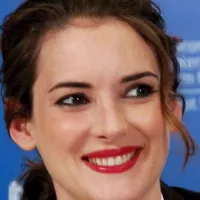
Winona Ryder is an American actress who gained recognition in...
India officially the Republic of India is a South Asian...

Christmas is an annual festival celebrated on December th commemorating...
The National Broadcasting Company NBC is a major American commercial...
Trending
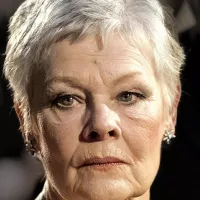
30 minutes ago Rosamund Pike recalls Judi Dench's 'naughty' side, calling her a 'mischief maker'.

2 hours ago Declan Rice's behavior scrutinized after derby win; Scholes deems him too emotional.

2 hours ago Donovan Clingan shines for Trail Blazers: Draft prospect improves shooting and raises questions.
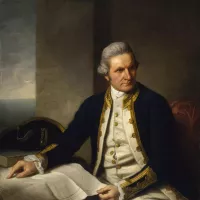
31 minutes ago James Cook and Dion Dawkins to appear at Dick’s House of Sport opening.

2 hours ago Shakira's Mexico City Concert: Security, Tickets, and Traffic Updates
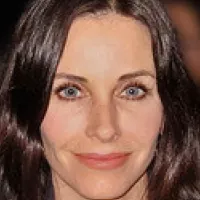
2 hours ago Courteney Cox wears 90s jeans, stays overnight with on-screen husband Greg Kinnear.
Popular

Jesse Jackson is an American civil rights activist politician and...

Susan Rice is an American diplomat and public official prominent...

Barack Obama the th U S President - was the...

Michael Joseph Jackson the King of Pop was a highly...

XXXTentacion born Jahseh Dwayne Ricardo Onfroy was a controversial yet...

Bernie Sanders is a prominent American politician currently serving as...
